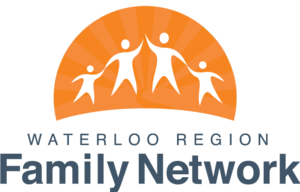
We collect basic website visitor information on this website and store it in cookies. We also utilize Google Analytics to track page view information to assist us in improving our website.
From time to time, the Waterloo Region Family Network (WRFN) is asked to distribute information on behalf of third parties. WRFN provides general information to self-advocates and families of children with special needs. The information provided on this website is not a recommendation, referral or endorsement of any resource, therapeutic method, or service provider. WRFN is not responsible for any information or services provided by third parties. You are urged to use independent judgment when considering any resource.
Instructions/guidelines
Currently, families of adults with a developmental disability cannot receive direct funding from the Family-Managed Home Care program unless they have power of attorney or guardianship for their loved one. You can use the information provided below to send a letter to Minister of Health, Christine Elliott, to ask for changes that will increase access to the program.
The main request to the Minister is to change FMHC policy, so that trusted family members of adults with developmental disabilities can act as trustees and manage funds for the program, without recourse to guardianship.
You can send the letter as-is, or you can edit and add information as needed.
We suggest that you send your letter to the following people:
Christine Elliott
Minister of Health
College Park 5th Flr
777 Bay St, Toronto, ON M7A 2J3
Cc:
Dr. Catherine Zahn, Deputy Minister catherine.zahn@ontario.cahttp://christine.elliott@ontario.ca
Melanie Fraser, Associate Deputy Minister, Health Services melanie.fraser@ontario.cahttp://christine.elliott@ontario.ca
We suggest that you include the following key points:
Family-Managed Home Care (FMHC) is an excellent program that allows people to source and manage health and personal care supports that are closely tailored to their needs.
Unfortunately, FMHC excludes many people who have a developmental disability. People with developmental disabilities who are considered incapable of managing the financial aspects of FMHC cannot access the program unless a family member becomes a Guardian of Property for the person needing support.
As the parent of a person who has a developmental disability, I refuse to ask my loved one to give up their human rights and control over their life – which would be the result of guardianship. I refuse to expose them to the risks of guardianship.
Article 12 of the Convention on the Rights of Persons with Disabilities states that all persons with disabilities enjoy legal capacity on an equal basis with others in all aspects of life. The UN Committee on the Rights of Persons with Disabilities has taken a strong stance against guardianship, stating that it removes people’s rights and control over their own lives.
I am asking you, as Minister of Health, to change FMHC policy so that trusted family members of adults with developmental disabilities can act as trustees and manage funds for the program, without recourse to guardianship.
The Ministry of Children, Community and Social Services (MCCSS) has for many years allowed trusted family members to receive and manage funds on behalf of people who have a developmental disability – without recourse to guardianship. This approach has been successful with Passport, the Ontario Disability Support Program, and with Innovative Residential Funding. I see no reason why we need to reinvent the wheel, when a viable model has been tried and tested in Ontario.
My loved one is in desperate need of tailored and responsive support in our home – support that is simply not possible with traditional home care. Asking families to apply for guardianship in order to access the program is unnecessary, is likely to result in negative consequences for people who have a developmental disability, and is inconsistent with movements focused on developing supported decision-making frameworks in other Canadian provinces and territories.
This is a solvable problem that will have positive outcomes for potentially thousands of families across the province, and the solution cannot come soon enough.